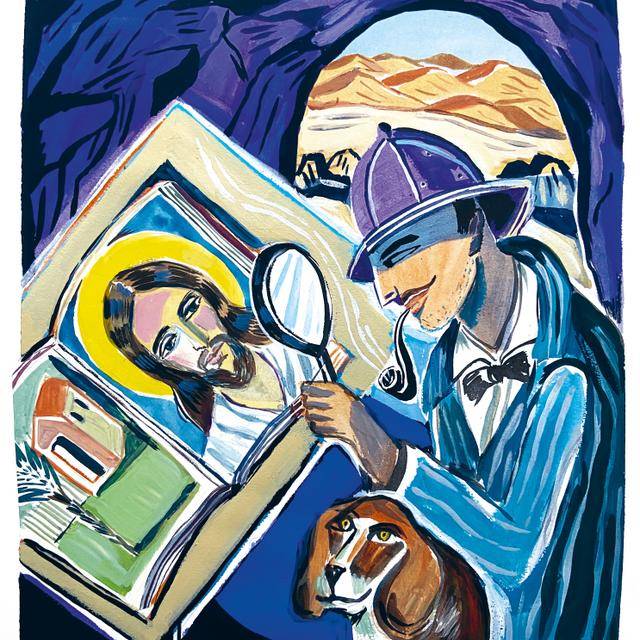Unveiling the Enigma of Jesus of Nazareth: A Journey Through the Ages
For centuries, the life and legacy of Jesus of Nazareth have been the subject of intense scrutiny, debate, and devotion. As one of the most influential figures in human history, Jesus has been revered, worshiped, and studied by millions around the world. Yet, despite the abundance of texts, artifacts, and oral traditions, the historical Jesus remains an enigma, shrouded in mystery and controversy.
The quest for the historical Jesus is a never-ending journey that has captivated scholars, theologians, and enthusiasts alike. From the earliest Christian communities to modern-day researchers, the search for the "real" Jesus has been a perennial pursuit, driven by a desire to understand the man behind the myth.
One of the most significant challenges in uncovering the historical Jesus is the scarcity of reliable sources. The New Testament accounts, which are the primary sources of information about Jesus' life, were written decades after his death by authors who were not eyewitnesses to the events they described. Moreover, these accounts are often contradictory, biased, and influenced by the theological and ideological agendas of the early Christian communities.
Despite these limitations, scholars have developed various methods and approaches to reconstruct the life and teachings of Jesus. One of the most influential approaches is the "historical-critical method," which involves analyzing the New Testament texts in their historical and cultural context. This approach has led to a greater understanding of the social, economic, and political landscape of ancient Palestine, which is essential for reconstructing the life of Jesus.
Another significant development in the quest for the historical Jesus is the discovery of non-Christian sources, such as the Jewish historian Flavius Josephus and the Roman historian Tacitus. These sources provide valuable insights into the historical context of Jesus' life and death, although they are often fragmentary and open to interpretation.
In recent years, the study of Jesus has been influenced by various disciplines, including archaeology, anthropology, and sociology. These fields have provided new perspectives on the life and teachings of Jesus, highlighting the importance of understanding the cultural, social, and economic context of ancient Palestine.
One of the most significant archaeological discoveries in recent years is the excavation of the ancient town of Nazareth, which has shed new light on the life and upbringing of Jesus. The discovery of a 1st-century house in Nazareth, which may have been the home of Jesus' family, has sparked intense debate and speculation about the historical Jesus.
The study of Jesus has also been influenced by the work of scholars such as John Dominic Crossan, Marcus Borg, and Bart Ehrman, who have challenged traditional interpretations of Jesus' life and teachings. These scholars have argued that Jesus was a Jewish peasant who preached a message of social justice and compassion, rather than a divine being who came to save humanity from sin.
As the quest for the historical Jesus continues, it is clear that the search for the "real" Jesus is a complex and multifaceted journey. While we may never know the historical Jesus with certainty, the ongoing debate and discussion about his life and teachings continue to inspire, challenge, and transform us.
In conclusion, the search for the historical Jesus is a never-ending journey that has captivated scholars, theologians, and enthusiasts alike. While the scarcity of reliable sources and the complexity of the historical context pose significant challenges, the ongoing debate and discussion about Jesus' life and teachings continue to inspire and transform us.
As we continue to explore the enigma of Jesus of Nazareth, we are reminded that the search for the historical Jesus is not just an academic exercise, but a spiritual and existential journey that challenges us to rethink our assumptions about the nature of God, humanity, and the world around us.
- 1st century CE: The New Testament accounts of Jesus' life are written by authors such as Matthew, Mark, Luke, and John.
- 2nd century CE: The earliest Christian communities begin to develop and interpret the teachings of Jesus.
- 18th century CE: The Enlightenment and the rise of historical-critical scholarship lead to a more critical and nuanced understanding of the New Testament accounts.
- 20th century CE: The discovery of non-Christian sources, such as the Dead Sea Scrolls and the writings of Flavius Josephus, provides new insights into the historical context of Jesus' life.
- 21st century CE: The study of Jesus is influenced by various disciplines, including archaeology, anthropology, and sociology, which provide new perspectives on the life and teachings of Jesus.
- John Dominic Crossan: A prominent scholar who has challenged traditional interpretations of Jesus' life and teachings.
- Marcus Borg: A theologian and scholar who has written extensively on the historical Jesus and the origins of Christianity.
- Bart Ehrman: A scholar and author who has written extensively on the New Testament and the historical Jesus.


